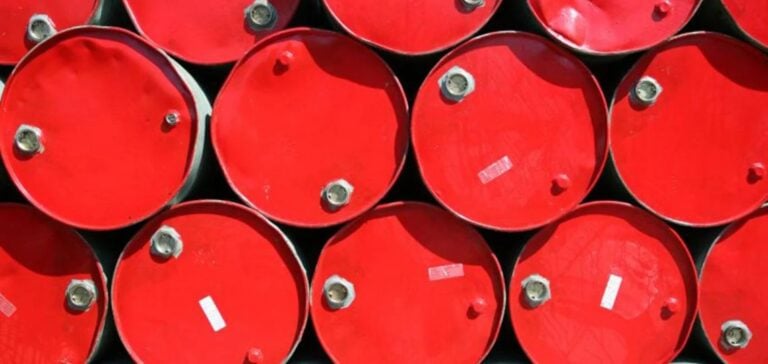U.S. crude oil stocks are expected to rise for the week ending October 25, according to a survey conducted by S&P Global Commodity Insights. The anticipated 800,000-barrel increase would bring total commercial crude stocks to around 426.8 million barrels, approximately 4% below the five-year average set by the U.S. Energy Information Administration (EIA).
Reduced refinery activity is one of the main factors explaining this stock build-up. Refineries have been operating at about 89% of their capacity, representing a 0.5 percentage point decrease compared to the previous week. Despite this reduction, production levels remain well above last year’s, as refineries continue operations while avoiding significant seasonal shutdowns.
Maintenance Activity and Margin Adjustments
This month, maintenance operations have temporarily shut down approximately 1.3 million barrels per day of refining capacity. Production shutdowns are expected to peak in October, impacting stocks of refined products such as gasoline and distillates, which are anticipated to continue declining.
In response, Valero Energy, one of the major U.S. oil companies, plans to increase its production rates during the fourth quarter. This strategy, aimed at higher profit margins, is based on reduced refined product stocks, increased diesel demand, and a wider price gap for sour crude due to rising available supplies.
Impact on Gasoline and Distillate Stocks
Meanwhile, national stocks of refined products, such as gasoline and distillates, continue to decline. Analysts expect a reduction of 1.1 million barrels in gasoline stocks, which should reach around 212.5 million barrels. This figure remains 11 million barrels below levels seen last year, marking the lowest stock level since November 2022.
Similarly, distillate stocks, used primarily for heating and truck fuel, are expected to drop by 1.4 million barrels to 112.4 million barrels, reaching their lowest level in ten months. These stock reductions highlight a refined products market under pressure as energy demand rises and temporarily reduced refining capacity creates a supply deficit.






















